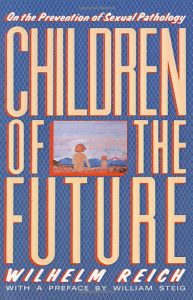by Andreas Peglau
Please cite as: Peglau, Andreas (2023): Apolitical Science? Wilhelm Reich and Psychoanalysis in National Socialism. An abridged version (https://andreas-peglau-psychoanalyse.de/apolitical-science-wilhelm-reich-and-psychoanalysis-in-national-socialism-an-abridged-version-2023)
Here you can download the pdf version – differing in some illustrations – of the following text.
The forwarding and distribution of this text for non-commercial purposes is expressly desired.
Introduction

In 2013, my dissertation „Unpolitische Wissenschaft? Wilhelm Reich und die Psychoanalyse im Nationalsozialismus“ was first published as a book. In 2015, the second edition followed and in 2017, the Psychosozial-Verlag Gießen brought it out in a third and expanded edition.
In a review, philosopher Werner Abel described it as „one of the most important books on the history of psychoanalysis, making its decline from a socially critical theory and practice to a medicalised, supposedly ‚apolitical‘ science comprehensible in detail for the first time.“.
The psychoanalyst Bernd Nitzschke stated: „The interweaving between the fate of psychoanalysis in the Nazi state and the history of Wilhelm Reich’s exclusion, persecution and emigration, which Peglau meticulously reconstructs, is the lynchpin of the book, which is an indispensable reference point for anyone who wants to deal with the Nazi history of psychoanalysts without blinkers in the future.“
I then compiled some of the most important results of my years of research in 2019 – with the kind permission of Psychosozial Verlag – in an abridged version in the orignal German. It has since been downloaded several thousand times from my website.
In order to make this information even more widely available, I have now supplemented and updated the text and translated it into English with the help of DeepL. Weiterlesen

